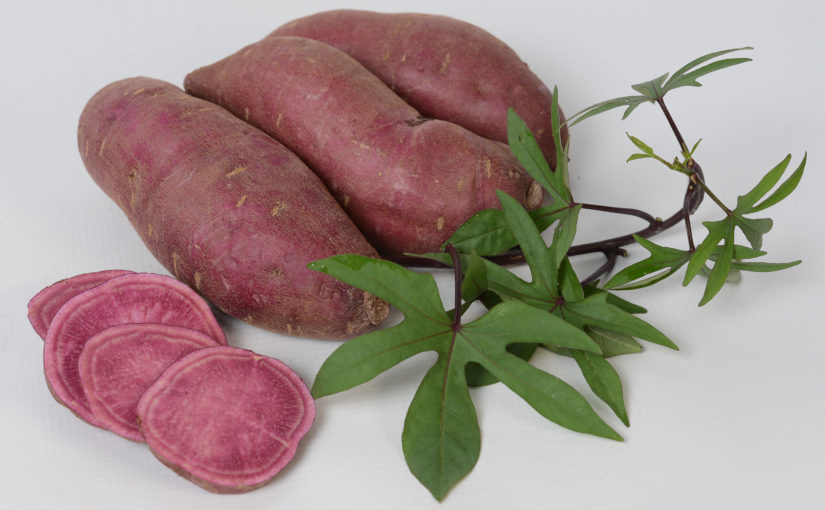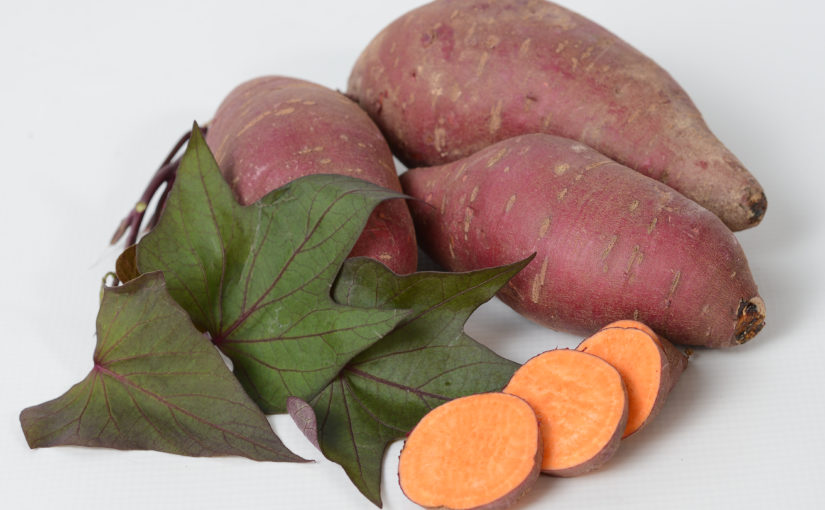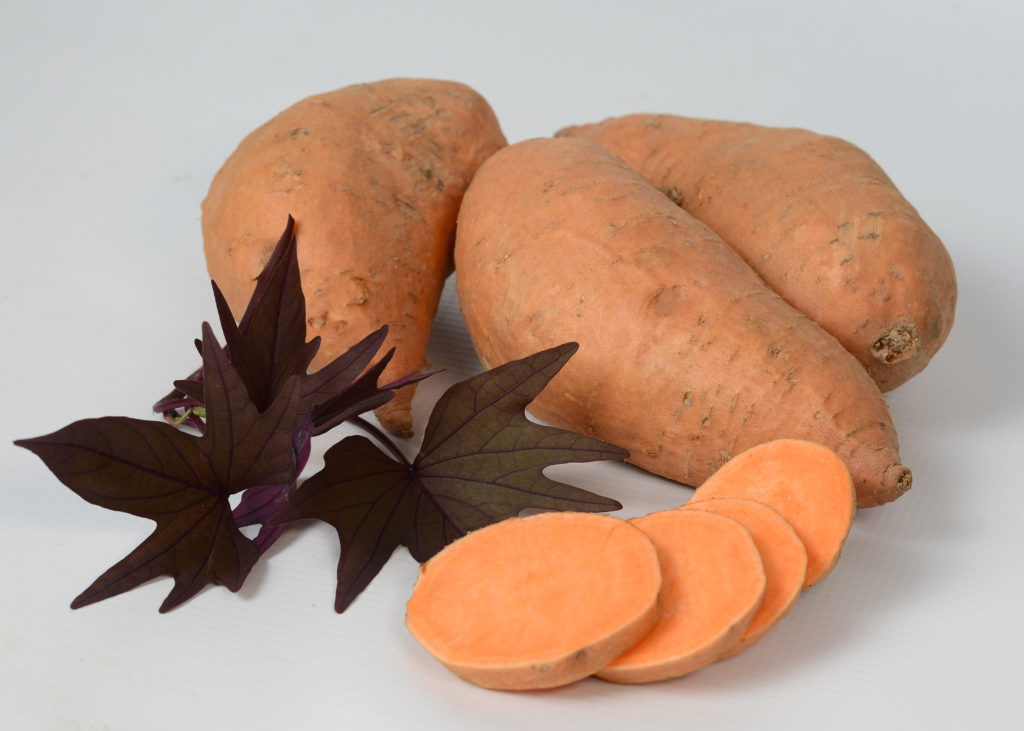Jun 24, 2021Sweet potato licensing at the LSU AgCenter becomes a success story
Sweet potatoes are a staple commodity of the Louisiana State University AgCenter, and new varieties developed, patented and licensed in the past 10 years continue to have commercial success.


Commercial growth was initially most significant with six varieties: Evangeline, Bonita, Murasaki-29, Bellevue, Orleans and Bayou Belle. The varieties boast resistance to common diseases in Louisiana, such as southern root knot nematodes and Fusarium wilt. They are a mix of orange and white flesh types, with skin tones ranging from copper to deep red. Murasaki-29 has a unique purple skin. Two new similar varieties are poised to enter commercialization, Vermillion and Sakura. Vermillion has deep red skin with orange flesh, and Sakura has deep purple skin with a light purple flesh and a unique flavor.
Licensing, or taking the legal right to make, use and sell these products, was initially focused in the United States. A company would take the sweet potato itself or any part of the sweet potato, such as cuttings or slips, to grow as a food crop or to share with its own network of farmers. Initially, these products were sold only in the U.S. Eventually, international partners came on board to produce and distribute the varieties in new regions, such as the European Union, Africa, Australia, South America and the Middle East.
The increase in global production and demand for these varieties created a problem of supplying the necessary stockto far-flung farmers. Consequently, a new generation of licensing was born: Zero. Generation Zero product begins as sweet potato germplasm in an in vitro plantlet and will always grow into a quality of plant as consistent as the original stock created at the LSU AgCenter. It must be produced and maintained in tightly controlled environments, free from outside viruses and pests to prevent mutation and disease. This stock is not as hardy as subsequent generations of sweet potatoes and its cuttings cannot survive extended transportation, necessitating partners closer to a new recipient’s location.
Partners capable of receiving, reproducing and routing this material must be vetted thoroughly and approved to be fit. The first of these agreements was completed in 2019 for a single company in Central America, followed in 2020 by a more expansive agreement in Europe for the European Union and several countries on the African continent.


Concurrent with the development of new markets and commercial arrangements, LSU AgCenter researchers created new edible ornamental varieties. These varieties include Makatea, Kaukura, Manihi, Tahiti and Tatakoto. These plants share features of the previous major six varieties, including orange flesh with skin tones ranging from purple to tan. They differ in having abundant colorful leaves of chartreuse or purple and attractive leaf shapes. In 2018, the LSU AgCenter began partnering with outside groups for production and distribution of these varieties in the U.S., Canada and the European Union.
Over the past decade, LSU AgCenter sweet potatoes have seen strong U.S. and global expansion. The timing was none too soon – breeding programs by nature are costly. This growth has ensured the breeding program has the financial resources to not only exist, but to expand and prosper and meet the needs of Louisiana producers. The roots have only begun to sprout with this commodity.
– Dirk Benedict is the assistant director of technology marketing for the LSU AgCenter Office of Sponsored Programs and Intellectual Property.
Read the story of sweet potato breeding.
Read about the patents on sweet potato varieties.
Photo at top: Manihi sweet potato.















